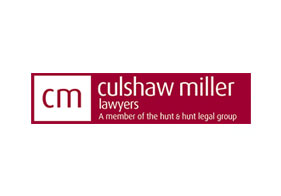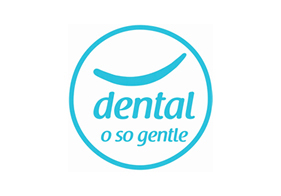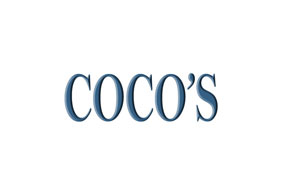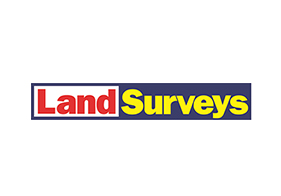The world of technology revolves around you.
But this is the modern world — smartphones, computers, and the internet have revolutionized how we live, and we depend on various layers of technology to see us through nearly every stage of the daily grind.
Almost all of us use the internet every day. It enables us to access our favorite websites, interact with friends and family, buy products from home, and much more.
But we don’t know how much effort goes into building a quality website.
People such as web designers and web developers may spend hours assembling a single page of a website, and large sites generally require large teams to build.
A domain name is one of the most important parts of a website’s success.
It’s the first thing a person sees, and it can also considerably affect how much a website is ranked on Google. But what does Google actually look for in a domain name?
Key Factors Google Considers in a Domain Name
1. How Does This Relate To Your Business or Industry
It should be related to your business. Its simple goal is to give both search engines and users a clear description of what your website is about.
Example: If you run a bakery, a domain like ‘BestBakes.com’ is a lot more meaningful than something generic like ‘XYZCompany.com.’
2. Keyword Inclusion
Though Google has moved beyond just exact-match domains, having relevant keywords as part of your domain can still boost your search rankings.
For example, a jeweler in Perth would be able to benefit from ‘PerthJewellery.com,’ not some vague brand name without a context.
3. Domain Length and Simplicity
We will make you need to remember and type shorter domain names.
Long or complex domain names are also prone to typographical errors and can discourage the user. Try to choose a simple and descriptive name which is aligned with your brand.
4. Domain Extensions (.com, .net, .au, etc.)
Google does not prefer one domain extension to another, but ‘.com’ is still the most recognized and trusted overall.
Therefore, if you are running a local business, each country-specific extension is highly advisable, such as ‘.com.au’ helps improve local search rankings.
5. Avoiding Hyphens and Numbers
Hyphenated and numerical domain names are also more difficult to recall and type.
That makes your site look less credible, too, and that can affect trust and click-through rates.
6. Brandability and Uniqueness
A unique, powerful domain name helps brand recognition.
Make sure you have a unique name easy to speak and spell, so in the long run, Google prefers older brands.
7. Domain Age and History
Google takes into account the domain history.
Did the site ever utilize the domain? If the domain was used for spammy stuff, don’t expect great rankings.
Use the Wayback Machine or your Google Search Console to check the history of an expired domain before you buy it.
8. Mobile-friendliness and User Experience
And with mobile search traffic now topping desktop use, a good domain should be easy to type on mobile devices.
Don’t use overly complicated vocabulary that can annoy mobile users.
Best Practices for Choosing a Google-Friendly Domain
These best practices will help ensure your domain continues to rank well in search:
Less Is More
Short domain names are easier to remember, type, and share. Ideally, try to keep the name under 15 characters. For example, ‘LuxuryJewels.’
It’s better than ‘TheBestLuxuryJewelleryOnline.com’ as it is short, simple, and does not add unnecessary complexity.
Make it Pronounceable and Easy to Spell
If people need to put a lot of effort into pronouncing or spelling your domain name, they will most probably mistype it and you will lose traffic.
Don’t use complicated words or words with odd spellings. For instance, ‘EliteRings.’ ‘ElyghtRhynz’ is much harder to remember than ‘com.com.’
Use Keywords Wisely
Use words that best explain your business, but don’t go overboard. A Sydney jeweller could register ‘SydneyJewellery.com,’ which is useful but not spammy.
Good stuff, without stuffing, like ‘jewellery online shop’ or ‘buy jewellery online cheap.com.’
Check Availability on Different Platforms
Branding consistency is important. When deciding on a domain name, also see if the same name is available on social media platforms such as Facebook, Instagram, and Twitter before you finalise a domain.
This avoids confusion, making sure that all digital channels showcase the same branding.
Get the Right Extension
The domain extension (‘.com,’ ‘.net,’ ‘.org,’ etc.) can tell a lot about the credibility of a source by looking at the end of the URL. If you serve a global audience, ‘.com’ is the best option.
For example, the ‘.local’ suffix is more suitable if your business is location-specific.
Including codes like ‘.com.au’ for Australia can contribute to local full-text search character, especially as search engines make gradual improvements.
Save Yourself From Copyright Trouble
Always make sure you check trademarks when buying a domain.
The last thing you want is a costly dispute resulting from the use of a name that another company legally owns.
You will want to check trademarks via the official government trademark databases to make sure your domain is safe to use.
Does Your Domain Name Affect SEO?
Yes, your domain name matters when it comes to SEO, but it’s only one of many considerations.
A structured, relevant domain name can increase user trust and click-through rates, which will positively impact rankings indirectly.
But quality content, backlinks, and technical SEO still matter for long-term success.
Google values domains that:
- Are relevant and closely related to the content of the website.
- Have a track record of offering quality insights.
- Are linked to a reputable brand.
A good domain won’t instantly shoot you to the top of the rankings, but it gets you where you need to be to implement strong branding and visibility in the search results.
The Effect of Domain Authority on Search Rankings
Domain authority (popularly referred to as DA) is a score that determines how well a site will rank on the page of the search engines.
DA is a metric that is not used as a direct ranking factor by Google, but rather is influenced by a variety of factors that affect SEO performance.
This is how domain authority influences search standings:
- Backlink Profile: A domain is likely to have a strong DA if it has lots of quality backlinks from reputable sites. Links from influential entities, such as news organizations or industry authorities, can provide a boost to your domain rank.
- Content Quality: Regular posting of valuable, well-researched content increases engagement and positions your domain as a trusted domain.
- UX: The less the bounce and the better the time on page metrics, the greater the post performance. A good structure where everything is reachable (in terms of clicks) has a positive impact on user behavior (time spent/readability), which indirectly helps with rankings.
- Domain Age: Generally speaking, the older the domain name, the higher your ranking, provided that quality content and ethical SEO (Search Engine Optimization) has been followed for that domain.
To improve your domain authority, focus on building high-quality backlinks, creating informative content, and ensuring a seamless user experience.
What Can a Domain Name Do for Branding
A good domain name is not just an issue of keywords and SEO, but they are also critical to branding.
Here’s how to leverage your domain name to build your brand identity:
- Memorability: You have to be able to find a domain that you can remember so that users can come back without searching for it again.
- Uniqueness: Stay away from generic names that conceivably get lost in a sea of competition. Having a unique name makes your business separate from the competition.
- Consistency: Make sure your domain is the same as your branding and business name-wise.
- Avoid growth-constraining names: Pick a name that makes room for expansion. STAY AWAY from highly specific names that may box your business in.
A brandable domain increases trust, user engagement, and long-term brand awareness — which means better ranking and customer loyalty.
Domain Name Security and Trust Factors
Google is all about trust and security while ranking websites. Your domain must appear credible to both audiences and search engines. To improve domain trust, here’s what to do:
SSL Certificates
Make sure your domain is HTTPS encrypted. These are the sites that show up highest in the search results.
How Long Is the Domain Registered For
Again, not a ranking factor per se, but Google seems to trust domains registered for a lot of years over short-term registrations.
Maintain Consistent WHOIS Information
If WHOIS information is inaccurate, it can be flagged as spam or abandoned.
Be Discouraging in Spammy Tactics
Do not practice deceptive practices, including utilizing misleading domain names to look like properly established brand names.
How Expired Domains Affect SEO
Buying used domains can be a savvy choice for businesses hoping to benefit from preexisting authority, but there are risks involved. Here’s what to consider:
- SEO Advantages: An expired domain with great links and that has been the site of a legitimate business could provide an immediate SEO gain.
- Possible Penalties: Domains that were previously used to send spam or deploy black-hat SEO strategies could have Google penalties already assigned to them, which could hurt your rankings.
- Domain Reputation Check: Use tools such as Wayback Machine to view how the domain was used historically and Google Search Console for manual penalties.
- Restoring Authority: A website may need to work on settling the reputational damage by sharing content, submitting links, etc.
Before purchasing an expired domain, conduct thorough research to ensure it aligns with your SEO goals and won’t negatively impact your website.
Conclusion
But your domain name is more than just a website link—it’s an important part of your online branding and SEO efforts. Picking a name that is relevant, memorable, and in line with Google’s best practices can set your website up for success.
Slinky Digital can help if you need assistance choosing a domain name that suits your business or enhancing your website’s online presence. We help to set up your websites with full optimization for search engine and user engagement.
Your domain name isn’t just a web address—it’s a critical part of your online identity and SEO strategy.
So when it comes to choosing a name, make sure you pick one that will be relevant, memorable, and consistent with Google’s best practices.



























